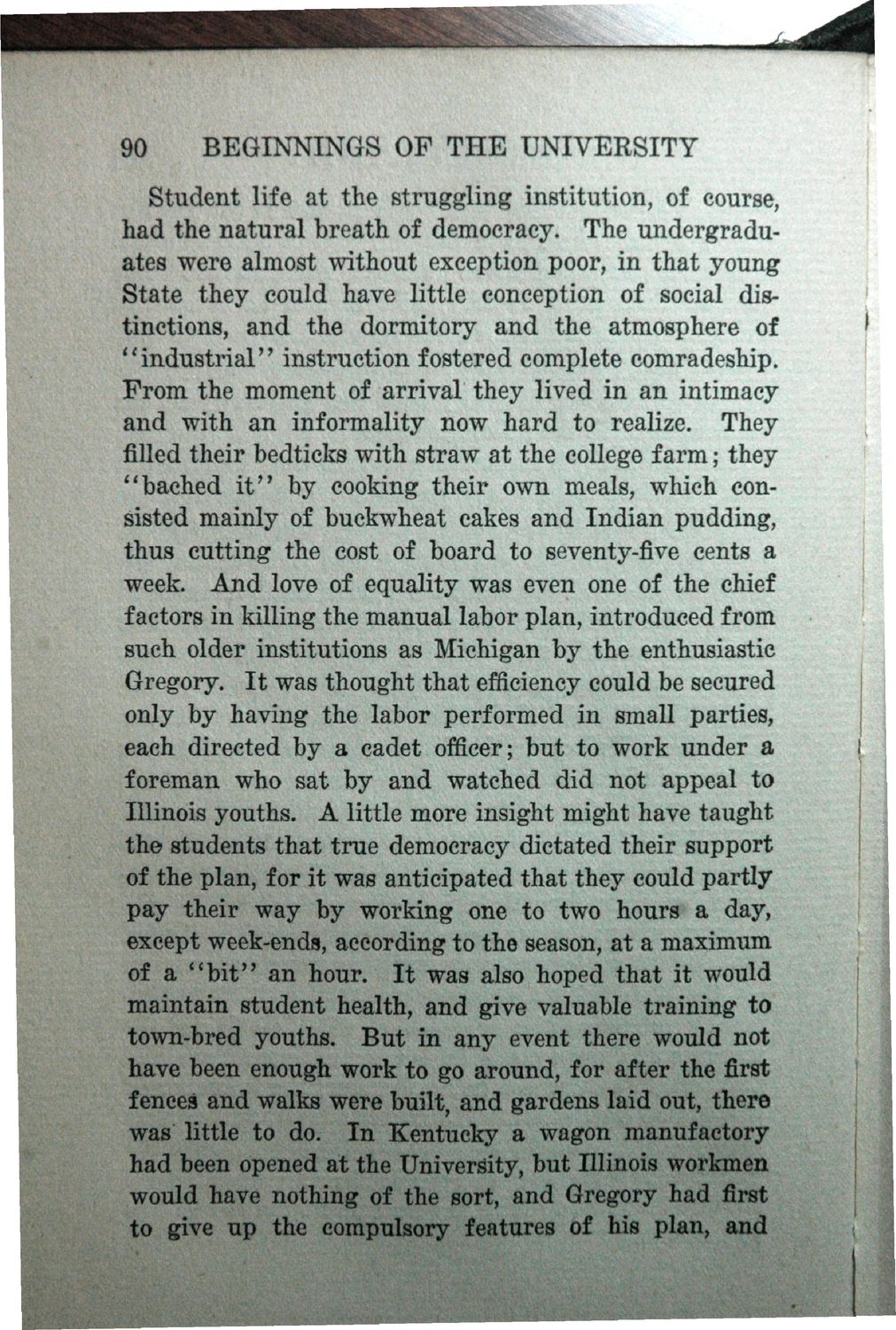| |
| |
Caption: Book - History of the University (Nevins)
This is a reduced-resolution page image for fast online browsing.

EXTRACTED TEXT FROM PAGE:
90 BEGINNINGS OF THE UNIVERSITY Student life at the struggling institution, of course, had the natural breath of democracy. The undergraduates were almost without exception poor, in that young State they could have little conception of social distinctions, and the dormitory and the atmosphere of "industrial" instruction fostered complete comradeship. From the moment of arrival they lived in an intimacy and with an informality now hard to realize. They filled their bedticks with straw at the college farm; they "bached i t " by cooking their own meals, which consisted mainly of buckwheat cakes and Indian pudding, thus cutting the cost of board to seventy-five cents a week. And love of equality was even one of the chief factors in killing the manual labor plan, introduced from such older institutions as Michigan by the enthusiastic Gregory. I t was thought that efficiency could be secured only by having the labor performed in small parties, each directed by a cadet officer; but to work under a foreman who sat by and watched did not appeal to Illinois youths. A little more insight might have taught the students that true democracy dictated their support of the plan, for it was anticipated that they could partly pay their way by working one to two hours a day, except week-ends, according to the season, at a maximum of a " b i t " an hour. It was also hoped that it would maintain student health, and give valuable training to town-bred youths. But in any event there would not have been enough work to go around, for after the first fences and walks were built, and gardens laid out, there was little to do. In Kentucky a wagon manufactory had been opened at the University, but Illinois workmen would have nothing of the sort, and Gregory had first to give up the compulsory features of his plan, and
| |